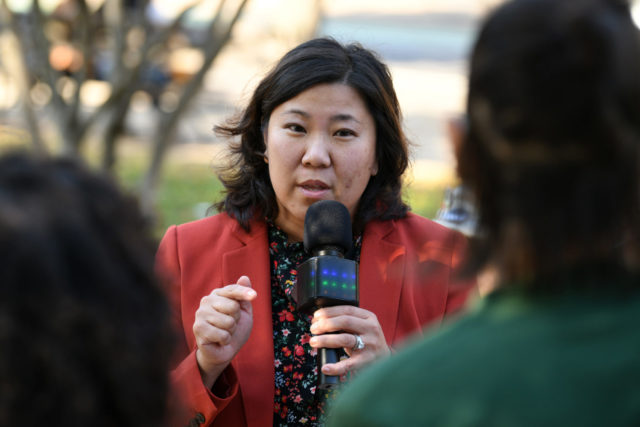
By Harmeet Kaur, CNN
(CNN) — It took decades of advocacy and effort, but a national African American museum now stands on the National Mall. After legislation that passed last year, national museums dedicated to Latinos and women are also in the works.
Now, one lawmaker wants Asian Americans to have a museum of their own, too.
A bill introduced by Democratic Rep. Grace Meng of New York would establish a commission to explore the possibility of a museum that would honor the history, culture and achievements of Asian Americans and Pacific Islanders. The group would be made up of experts in AAPI history and culture, as well as museum administration, who would look into how such an institution might be funded and maintained, where it might be located and other relevant questions.
“AAPI history is long and storied, and a national museum dedicated to it is overdue,” Meng testified in a subcommittee hearing on December 7. “As long ago as the 1700s, AAPIs have shaped the fabric of our country with contributions to our infrastructure, economy, selfless military service, and so much more. But, too often, our community is excluded or forgotten in history — our American history.”
In a letter to the chair of the House Natural Resources Committee last week, Meng asked that her bill be the first measure taken up by the panel in January. If the committee approves her bill, it would then head to a vote on the floor of the House.
Meng’s push for her bill is among several recent efforts that seek to promote and preserve Asian American history. New Jersey’s legislature recently passed a bill requiring its public schools to teach Asian American history, while Illinois adopted similar legislation in July. It also comes as reports of violence and racism against Asian Americans increased during the Covid-19 pandemic and after the deadly Atlanta spa shootings earlier this year.
About 24 million people in the US identified as Asian in the 2020 Census, and the population is projected to reach 46 million by 2060 — making them the nation’s fastest growing racial or ethnic group.
By recognizing the accomplishments and contributions of Asian Americans and Pacific Islanders in a dedicated physical space, the US could both inspire younger generations and educate visitors on often-overlooked aspects of its history, Meng said at the hearing. She cited Chinese soldiers who fought for the Union during the Civil War, Japanese Americans who fought for the US during World War II and Filipino laborers who helped lead the farmworker movement, as well as historical figures such as activist Grace Lee Boggs and politician Dalip Singh Saund.
“Shamefully, these stories are starkly missing from the narrative of American history,” Meng added.
CNN has reached out to Meng’s office for comment.
CNN journalist Lisa Ling and Stop AAPI Hate co-founder Russell Jeung also testified at the hearing.
“When the stories and histories of a people are excluded from a country’s narrative it becomes so easy to overlook and even dehumanize an entire population,” Ling said. “And while the inclusion of this history would go a long way with a diaspora as diverse and vast as ours, it can’t just be a chapter in a textbook.”
Even if the bill is ultimately passed by the House and Senate, it would likely be years before a national museum of Asian Americans and Pacific Islanders opens for visitors. Congress approved a plan to establish the National Museum of African American History and Culture in 2003, but it wasn’t until 2016 that the museum opened its doors to the public.
The-CNN-Wire
™ & © 2022 Cable News Network, Inc., a WarnerMedia Company. All rights reserved.

































